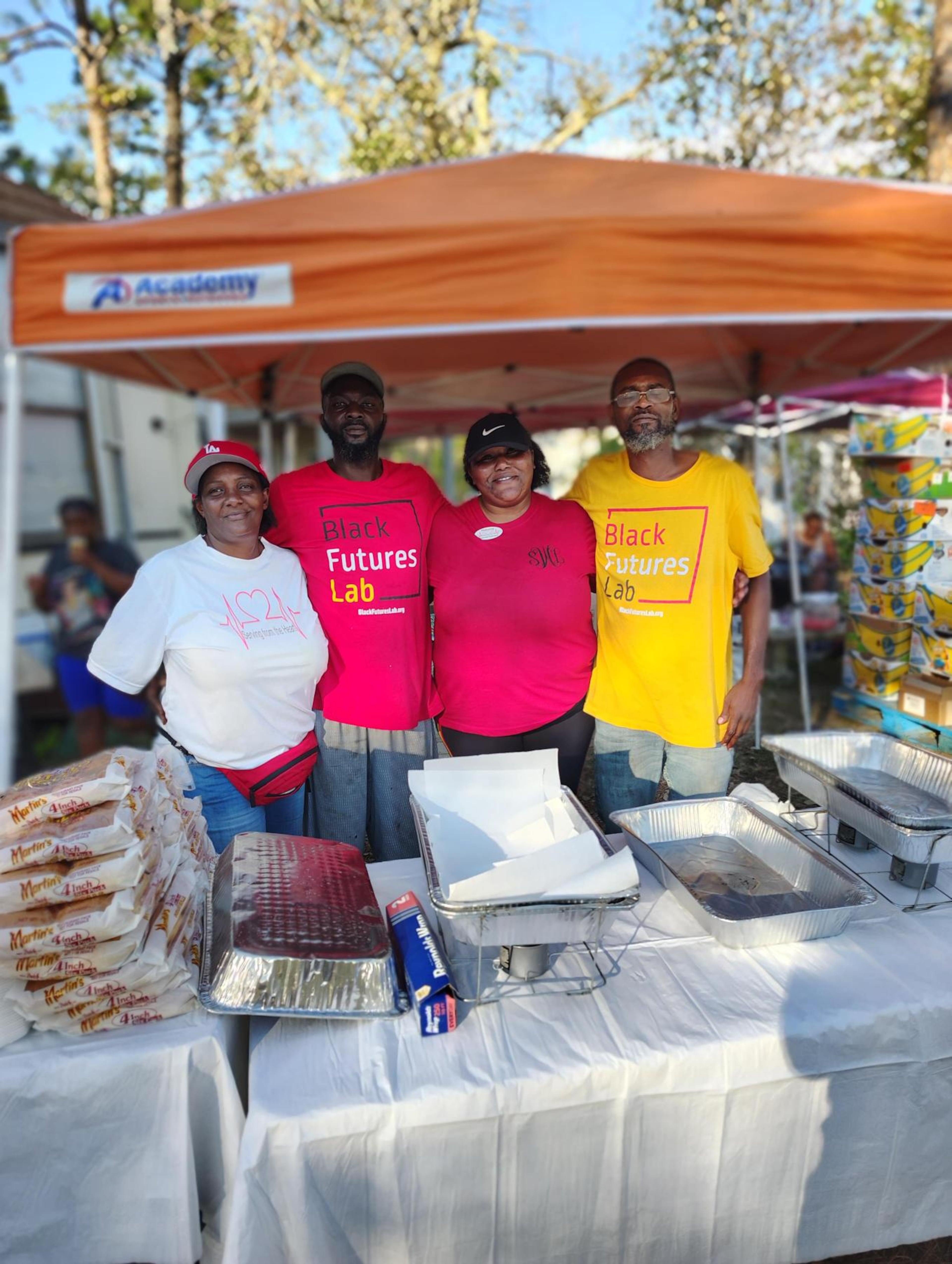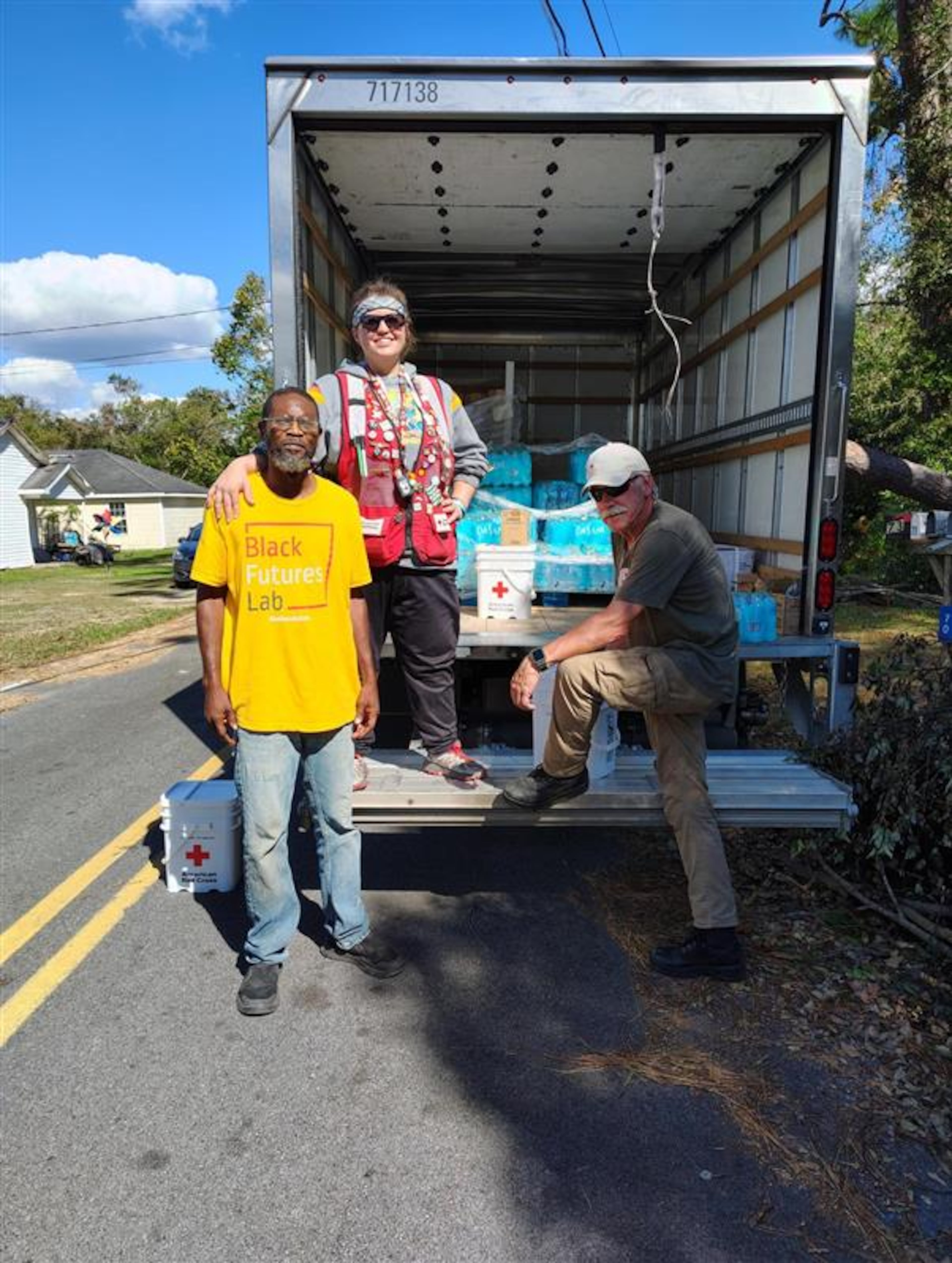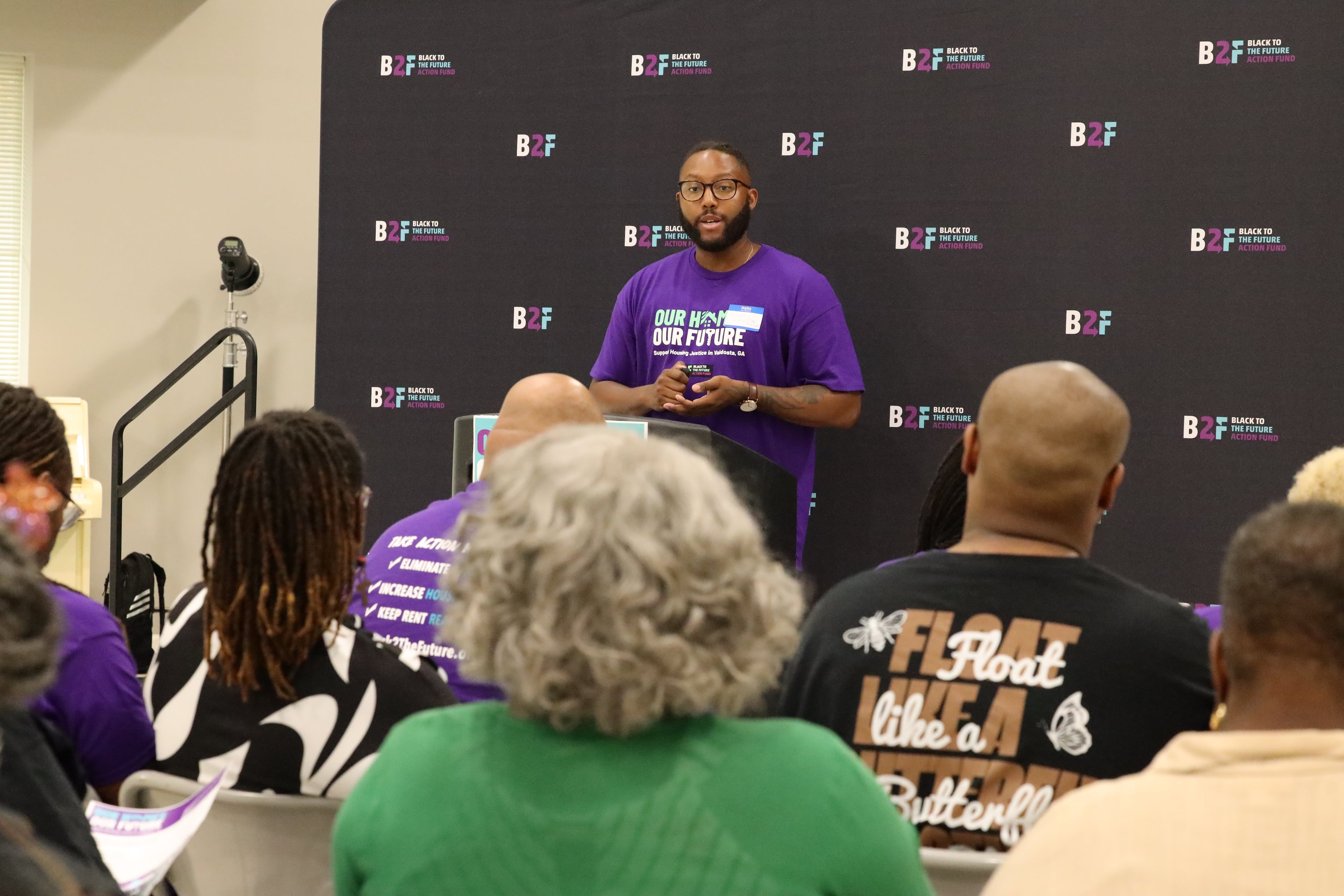Black Valdosta spreads political awareness as it prepares for multiple hurricane anniversaries

Hundreds are expected to attend Black August Power Fest in Valdosta Thursday evening to spread political awareness and share resources ahead of the oncoming hurricane season, as Black residents keep fighting the devastation from previous bouts with natural disasters.
National nonprofit Black Futures Lab and its sister organization and political arm, Black to the Future Action Fund, are hosting the event for the first time ever in Valdosta.
Black Futures Lab Senior Policy Campaign Strategist Russell Armstrong said the purpose of the festival is to raise awareness about a number of systemic infrastructural issues plaguing the community.
“The south of Valdosta is a majority Black community,” he said in an interview. “When you look at what’s provided between downtown and north of Valdosta (versus) the south of Valdosta, there’s just the economic divide and opportunity divide.”
Armstrong claimed the last couple of hurricane seasons have disproportionately affected Black residents in Valdosta and the rest of Lowndes County.

“In the majority Black and brown communities of Valdosta — in those districts that are represented by Black elected officials — they don’t have the same access to resources,” Armstrong explained. “That same sort of redlining that you see in other communities exists there, and even to the point where some of the damage that was seen from the hurricanes and the lack of recovery is worse in those parts of town.”
Over the span of just 13 months, Georgia was ransacked by a series of hurricanes.
In August 2023, the state was placed under a 10-day state of emergency when Hurricane Idalia bombarded its way from western Florida with jolting rains and damaging winds.

Hurricane Debby brought torrential rainfall to Valdosta in August 2024, causing thousands to lose power.
Then, Hurricane Helene rattled through the state in September 2024, and Valdosta was the hardest hit area in Georgia. Much of the city and its surrounding area was left without power, including the South Georgia Medical Center, which had to operate off a backup generator. Helene claimed at least 219 lives and caused nearly $80 billion in damage in the U.S.
Before the three major storms made impact, Valdosta, a city with a majority Black population, had not been touched by a hurricane in more than 160 years, according to the Black Futures Lab.

Armstrong said the Black residents of Valdosta have tried to make do in the aftermath of the storms. There have been meal donations, and some residents felt they could probably fix some housing issues themselves. But it’s not enough when resources from the Federal Emergency Management Agency have dried up.
“It’s been an effort to try to lean on each other, but by themselves, it’s just not enough,” Armstrong said.
He suggested policies have to be put in place to increase housing and keep rent affordable for residents.
“(We need to make) sure that we’re investing in those communities rather than breaking them up,” Armstrong advised.

He said that a number of people had moved inland to Valdosta from the coast in order to leave areas that were prone to hurricanes. Now, it’s as if their relocation has been in vain and a hit on resources.
“Those people who moved there ended up being right in the same eye of the storm that they had been in before,” he said. “There’s people who had tarps on their roofs and felt like they’re able to manage, like some of the repairs on their own, until the next storm came through and wiped away all of the repairs they’ve made.”
He explained that federal and state benefits only covered but so much for Valdosta residents.

“It’s led to a homelessness crisis in Valdosta, where there are many unhoused people, or people doubling and tripling up in homes because they can’t either go back to their homes where they were beforehand because damage is still there,” Armstrong said.
Then, he added that there’s an infrastructure issue that prevents residents from building durable homes on sustainable foundations.
“The city wasn’t designed to handle this type of massive rain on a regular basis. So, the streets, sidewalks, facilities get flooded within hours of a strong tropical storm. Water damage leads to mold, leads to everything else.”
Black August Power Fest also aims for the community to discuss affordable housing, better health care and voter enfranchisement. Music and food vendors will be in attendance so the community can “party with a purpose,” Armstrong said.
